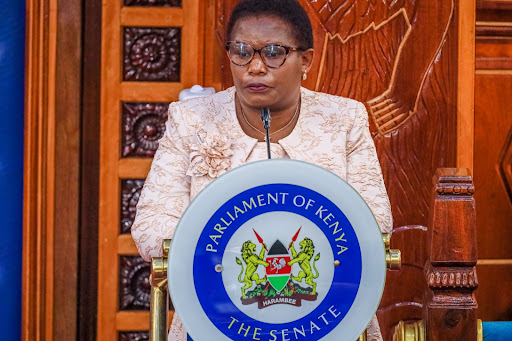Last Thursday, August 22nd, Meru Governor Kawira Mwangaza, embroiled in controversy, shared a triumphant message on her Facebook page: ‘Kabati kabati kaende kaende #MbeuyaNgai #KumiBilaBreak So help me God,’ which translates to ‘Onward without a break, with God’s help for ten years.’ This post came just a day after the High Court suspended her impeachment, which the Senate had ratified the previous day. The Senate had previously thwarted two other attempts to impeach her. In this third impeachment effort, she faced accusations of gross constitutional violations, gross misconduct, and abuse of office.
Governor Kawira’s impeachment drama offers profound leadership and governance lessons. Firstly, Mwangaza’s impeachment underscores the paramount importance of accountability and transparency in leadership. The intense political machinations that led to her ouster undermine transparency and accountability. Ultimately, leaders must be accountable to the people. Even in the midst of this ongoing drama, the County’s elected leaders must continue delivering services to the people. Whether you support or are opposed to the Governor’s impeachment, we can agree that this incessant political drama disadvantages the people of Meru.
Secondly, integrity is the bedrock of effective leadership. The erosion of public confidence in Governor Mwangaza due to perceived or actual lapses in integrity serves as a stark reminder that leaders cannot afford to compromise on ethical standards. This lesson resonates deeply in the realm of environmental conservation, where decisions must be made with a long-term view, prioritizing the well-being of the environment and future generations over short-term gains. When leaders act with integrity, they build trust and ensure that their actions are aligned with the greater good.
Thirdly, the impeachment process against Mwangaza was not the result of isolated efforts but a collective action by the Meru County Assembly. This collective effort demonstrates the power that communities and groups hold in holding leaders accountable. In the context of environmental challenges, this lesson is particularly relevant. Collective action is essential to combat issues like climate change and environmental degradation. Just as the assembly’s unified stance led to Mwangaza’s impeachment, a united global effort is necessary to drive meaningful environmental change.
Fourthly, Governor Mwangaza’s impeachment serves as a stark reminder of the fragility of political power. Power, if misused or taken for granted, can be swiftly revoked. This fragility is mirrored in the environmental domain, where the delicate balance of ecosystems can be easily disrupted by careless or exploitative actions. As such, leaders must use their power to preserve and protect not to exploit for short term gain.
Fifth, the recurring impeachments in Meru highlight the critical need for ethical leadership. Leaders who prioritize personal gain over the well-being of their community or environment are bound to face resistance and eventual downfall. Ethical leadership is not just about avoiding corruption; it is about making decisions that prioritize the long-term health and prosperity of the community and the environment. In the environmental context, this means leaders must prioritize sustainability over short-term profits, ensuring that their actions benefit both current and future generations.
Governor Mwangaza’s repeated impeachments highlight a cycle of unresolved issues in Meru, reminiscent of a festering wound. Without deep, systemic reforms in Kenya, such cycles can only worsen. Meru’s political and governance challenges require more than judicial intervention — they need genuine dialogue and long-term solutions. True sustainability demands profound change to ensure lasting stability.
In 2023, the National Syndemic Diseases Control Council (NSDCC) survey revealed Meru as having the highest rate of teenage pregnancies in Kenya, with poverty, parental neglect, and FGM as significant contributors. This underscores that our leaders in Meru are part of a broken system that courts alone cannot fix to protect these vulnerable communities. Perhaps intervention by Nchuri Ncheke is necessary, reflecting the Meru saying, ‘Agicuuria ta kireere naiji uria akareera’- He who chooses to hang himself as a bat knows how he will float through the air. It’s time for Meru leaders to confront realities. Pambaneni na hali yenu! Think green, act green!



